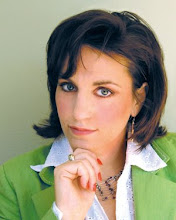Well, since I mentioned Mike Danna in my blog, I thought I'd share with you an article he wrote about agriculture--the myths of the industry vs. the facts. Some interesting reading that may get you thinking tonight. Enjoy!
----------
Urban legends about about many things these days — just check www.snopes.com for page after page of myths that are mostly more myth than fact. However, there are some "urban" legends about agriculture these days that seem to persist despite all the facts to the contrary. Here's a list of some of my favorites and the real deal behind them:
Myth: The only sustainable form of food production is organic.
Fact: If the world converted to all-organic food production, yields would decline 30 to 40 percent and crops would become much more vulnerable to diseases such as the potato blight that caused the Irish food famine. In addition, to product the nitrogen needed to fertilize crops organically, we would need to convert one-third of all crop acreage into production of "green manure" plants which release nitrogen as they biodegrade, or increase the number of cattle on the planet 700 percent to produce it.
Myth: A person's genes can be changed by eating a genetically modified food.
Fact: If you eat corn, you don't become corn. Your body digests the proteins and absorbs the amino acids to use them to build proteins. Your body cannot tell where a protein originates. It treats all proteins alike and problems only occur when someone is allergic to the protein, such as those in peanuts and shellfish.
Myth: Only genetically modified tomatoes have genes; ordinary tomatoes don't.
Fact: All living things contain genes whether they are genetically modified or not. Yet consumers in many countries answer the question "Do only genetically modified tomatoes have genes?" incorrectly, in the affirmative.
Myth: Globally, hunger is caused by a shortage of food.
Fact: Hunger is due to economic, political and social reasons. The world produces enough food for everyone. Even Africa produces enough food to feed that continent. Poverty results in lack of access to that food and hunger also may be induced for political or social reasons, especially in war-torn areas of the world. Unfortunately, producing more food will not solve these problems.
Myth: We are losing family farms because large, corporate farms are taking over American agriculture.
Fact: Less than one percent of farms are non-family-owned, corporate farms. Family farms still produce the majority of our food and fiber (about 86 percent). While it's true that farms are becoming larger in order to spread costs and risks over more production and many incorporate for tax purposes, they're still family-owned farms.
These myths and many others can be found in the booklet "Addressing Misconceptions About Agriculture," produced by the American Famr Bureau Foundation for Agriculture. To learn more, please visit www.ageducate.org.

No comments:
Post a Comment